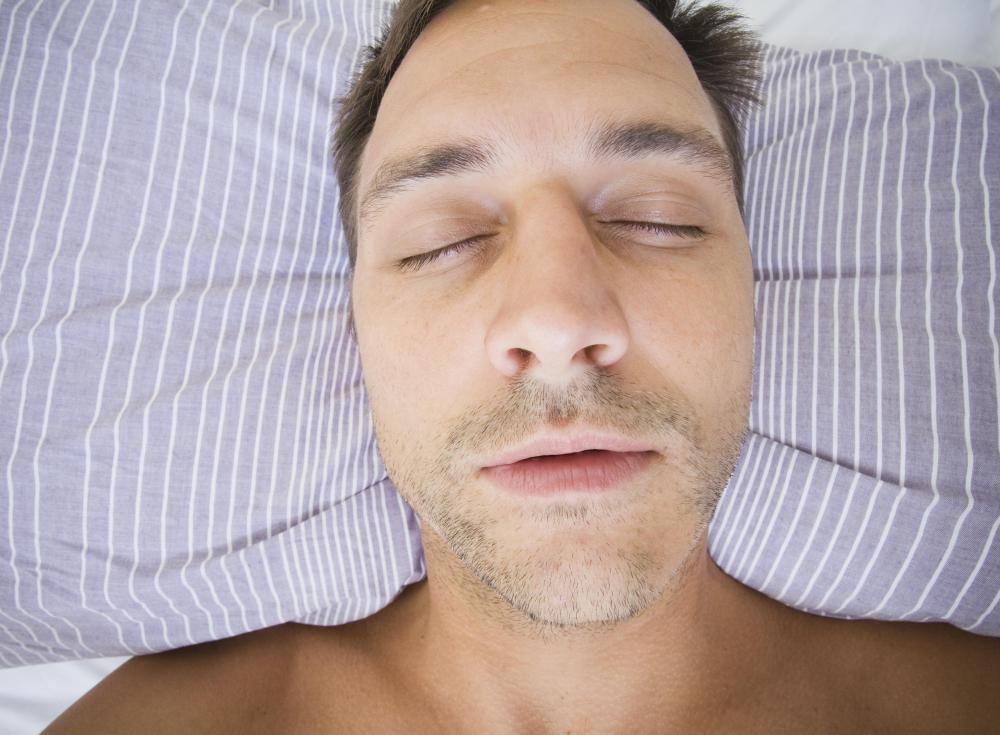At WiseGEEK, we're committed to delivering accurate, trustworthy information. Our expert-authored content is rigorously fact-checked and sourced from credible authorities. Discover how we uphold the highest standards in providing you with reliable knowledge.
What is Bruxism?
Bruxism is a medical condition in which the sufferer grinds or clenches his or her teeth unconsciously, often during sleep. It affects many children and adults and can be a serious condition. People with this condition suffer from a number of related dental and medical problems that can worsen over time if the tooth grinding is not corrected. Many people who have it are not aware of their condition, as they only grind their teeth while unconscious. Often, a person who sleeps in the same room as the affected individual is the one who discovers the problem, due to the characteristic sound.
Chronically clenching the jaw can cause pain in the jaw, ears, or face, as well as muscle soreness and headaches. In addition, bruxism can damage the teeth through chipping or erosion. The teeth of a person with this problem can become more sensitive and more prone to cavities as the enamel is worn away. The condition can even affect the sufferer's sleeping partner, as the noise of grinding teeth can be loud enough to prevent him or her from getting a good night's sleep.

Lifestyle may contribute to the development of bruxism, though it is not known to what degree this is true. Excessive alcohol intake, along with poor exercise and sleep habits, are thought to contribute to the condition. Stress may also be a factor, particularly in those whose grinding appears during waking hours. Many cases are due to a misaligned jaw or teeth, however, especially in children. Bruxism can also be a symptom of another disease or a side effect of certain medications.

The most common treatment for bruxism is a mouth guard worn during sleep. This can both prevent damage to the teeth and minimize tooth grinding behavior. Mouth guards may be purchased over the counter or custom fitted. Lifestyle changes, such as consciously relaxing the jaw during the day, managing stress, and making sure to get a full night's sleep, can also be helpful.
AS FEATURED ON:
AS FEATURED ON:

















Discussion Comments
I have one. Just go to the toothpaste aisle of a well-stocked pharmacy (also toothbrushes and floss and mouthwash and all the other mouth-stuff will likely be in this aisle) and there they usually have several varieties of bruxism appliance. The one I like is the one that you boil for a minute so it softens, then you put it in your mouth and shape it to your own teeth. But there are several kinds.
The article says a guard can be bought over the counter. I'm assuming it isn't the same type of guard that is used in sports, so I need to look for one at a pharmacy NOT a sports store right?
Post your comments